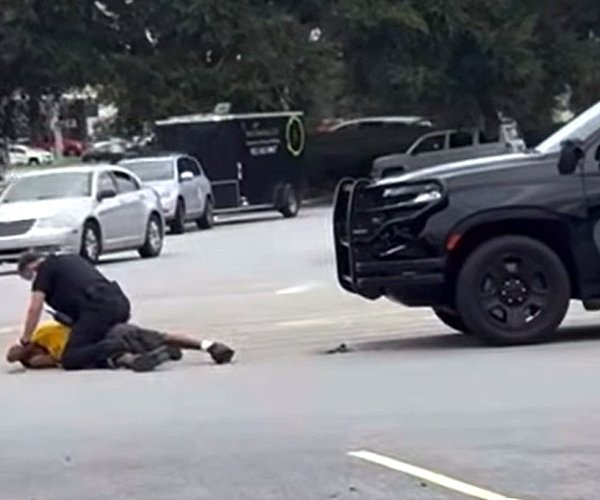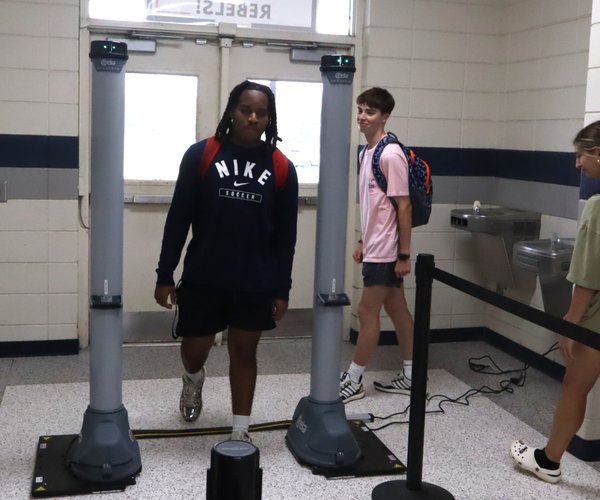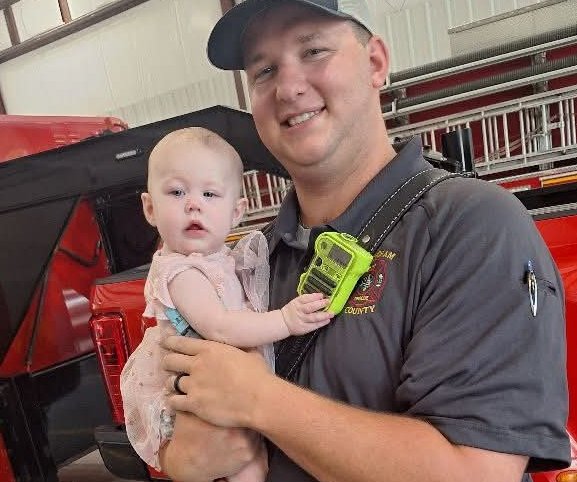Effingham County’s transportation ills could be getting a little bit of remedy, starting this spring.
Ann Purcell, the 1st Congressional District member on the state transportation board, said the contract for the divergent diamond could be let as early as May.
Purcell, speaking to Effingham community members at last week’s Effingham Day at the Capitol, said the divergent diamond could be completed in year and a half. The divergent diamond will take traffic exiting from I-95 north onto Highway 21 north via the left-hand lanes.
“That’s a positive thing,” she said.
The divergent diamond for the I-95/Highway 21 interchange will be done with state and local money. Using federal funds for a transportation project, Purcell explained, “slows you down.”
“And 55 percent of the money coming (into the state) is federal money,” she added.
Purcell also said last Monday’s meeting with state Department of Transportation officials, including deputy commissioner Todd Long, went well, and the state welcomed Effingham leaders’ willingness to scale back the Effingham Parkway plans.
Instead of a four-lane, divided route from Effingham into Chatham, the revised plans are pegged to cost $38 million instead of the proposed $120 million. The route is planned to be a two-lane road, approximately 6.4 miles long, ending at Highway 30.
“You’ve got to get another way out of Effingham,” Purcell said. “I want to thank our commissioners and the municipalities for coming to the table for saying ‘this is what we’re willing to do.’ We are moving forward. Chatham County is at the table.”
Sen. Tommie Williams (R-Lyons), chairman of the Senate Transportation Committee, and Sen. Steve Gooch (R-Dahlonega), the vice-chairman, discussed the funding shortfalls the state faces for transportation needs and the
potential repairs statewide.
“We do have a funding issue in the state of Georgia, as most states do,” Gooch said.
Taxes on gasoline and motor fuel provide a significant portion of the DOT’s budget. But falling gas prices and more fuel-efficient vehicles have meant less tax money coming into the state. Gooch said the state has been selling about 7 billion gallons of gas a year, but that number has been fairly flat over the last several years.
“How do we continue to operate the state without raising taxes? That’s a hard thing to do,” he said. “We’re looking for a steady income to take care of the needs and infrastructure. Atlanta’s congestion is a major problem for economic development. I challenge you to help us find a solution. It is not going to be easy.”
The state’s fuel taxes are broken down into a sales tax and an excise tax. Eighteen cents from each gallon goes to the federal government, which also returns money to states. There is a 7.6 percent excise tax and a 7 cent sales tax on each gallon sold.
“The sales tax is split several different ways,” Gooch said. “Everybody is getting a piece of the pie.”
Revenues for the state DOT have to fund not only new construction but also maintenance of the state’s roads and bridges.
“We want to make an argument that the money needs to come to the DOT and to the local governments to help maintain roads and bridges,” Gooch said. “We have bridges in this state that haven’t been maintained in 10-20 years, bridges that are 50 years of age and continue to deteriorate.”
Without money to repair bridges, the weight limits on those spans have been reduced to lessen the wear on them, according to Gooch.
A new bill in the state House, HB 170, calls for replacing the state excise and sales taxes on fuel sold with a 29.2 cents per gallon excise tax. The bill, dropped last week, has not been brought before the House Transportation Committee yet.
Rincon City Manager Wesley Corbitt issued a concern that going to an excise tax could take as much as $500 million out of local governments. The loss of that revenue could force local governments to go up on millage rates and property taxes.
“The more taxes go up, the less people spend,” he said. “You can’t take all that money from the local governments and not give it back. There has to be some formula created so they can it use on their roads. We want to make sure they are using it on their road needs.”
Gooch said the 3 percent sales tax on motor fuel generates roughly $560 million annually, and the state has to find a way to replace that for local governments, if it is lost through a new tax structure. Gooch added that going from a sales tax to an excise tax makes the expected revenue stream more predictable. He also said there is the argument the money school districts receive from E-SPLOSTs on motor fuel taxes should be diverted to transportation, rather than go toward debt service or buildings.
“Just because you take it away doesn’t mean you can’t get give it back in a different form,” he said.
Williams said the ideas of a fractional special purpose local option sales tax and allowing neighboring counties to join in a regional SPLOST also have been broached.
“There are counties that are regional hubs that may not partner with anybody,” he warned.
The idea behind the T-SPLOST, approved in only three of 12 regions, was to help counties that don’t have much of a sales tax base, Williams said.
“The further you get from home, the less likely people are to support the bill,” Williams said. “We should have realized you can’t put DeKalb County and Cherokee County in the same district and have them vote yes.”
Effingham County commission Chairman Wendall Kessler espoused his support of a local T-SPLOST with adjoining counties, but he also said how that sales tax is structured is key. Kessler also posited allowing a county to partner with an adjoining county for one project and then partnering with another adjacent county for a separate project.
“We have that need of an alternate path out of Chatham,” he said. “And 21 and 95 is a problem. I don’t want to be part of driving Effingham to another penny tax when people can drive across the county line to Chatham. It’s a need to partner with an adjoining county.”
Effingham’s traffic also could be impacted in the coming years by the deepening of the Savannah port. Taking the port from a depth of 42 feet to 47 feet will allow the post-Panamax ships to enter the harbor, bringing in twice the number containers per ship. Effingham Chamber Executive Director Rick Lott worried that will mean more trucks headed north to Augusta through Effingham, and not just headed for points north and south on I-95.
“My fear is if we don’t find a solution to the transportation problems, that success is going to bog down in Effingham,” he said. “I have a real fear this going to hit worse before it gets better.”
Williams said the state has to find the money to alleviate future traffic problems resulting from the expanded harbor. The Jimmy DeLoach Parkway extension is continuing, which will give trucks a direct route from I-95 to the port entrance.
“We are addressing some of those issues we do have,” he said. “It’s an economic development issue that brings some difficult circumstances. But we are planning on addressing those issues.”
While the port does not directly fund road improvements, the senators pointed out it generates millions of dollars in revenue that is returned to the state coffers, and that money could be spent on transportation fixes.
The deepening of the port, which has $266 million in state money involved, requires removal of the Civil War ironclad CSS Georgia, which is buried in the Savannah River bottom, not far from Fort Jackson.
“Our state is moving with our state dollars,” Purcell said. “We have the go ahead to start the process. That’s a big, positive thing.”








